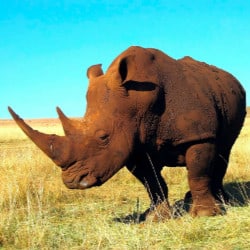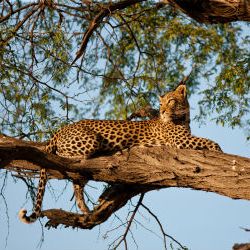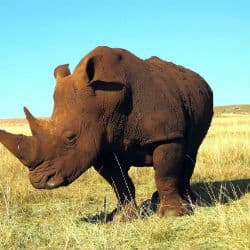News
We bring you the latest from around the World in wildlife and conservation news.
New Video Footage Gets Animal Rights Activists Up In Arms Over Killer Whales In Captivity
A video that was recently posted which appears to show a captive killer whale at SeaWorld beaching herself for over 10 minutes during a show has animal rights activists up in arms. Activists say they think the behaviour suggests the whale was trying to kill herself, however Sea World has shot back saying the behaviour is perfectly natural.
South Africa To Go High Tech In Fight Against Rhino Poachers
South Africa is expanding its use of technology to keep poachers away from rhinos. The country is keeping track of people coming in and out of a game reserve that is very near Kruger National Park. Authorities are tracking people regardless of how they enter and exit the park whether it be landing by helicopter, cutting through a fence or driving past a gate.
33 Lions Rescued From South American Circuses
Last month, 33 lions that were rescued from circuses in Columbia and Peru were flown back to South Africa to live out the rest of their lives in a private sanctuary. This was the largest ever airlift of lions and the entire operation was funded by Animal Defenders International. The group which is headquartered in Los Angeles has been working with lawmakers in the two South American countries for years to ban the use of wildlife circuses where the animals are usually kept in terrible conditions.
Leopards Have Lost An Awful Lot Of Their Historic Range
Leopards all over the world have lost about 75 per cent of their historic range the results of a new survey suggest. The survey is the first effort at getting a sense of the leopard’s global paw print. The survey was conducted in collaboration with the Zoological Society of London, Panthera and National Geographic Society’s Big Cats Initiative. The researchers looked at over 1,300 sources of information regarding the leopard’s historic and current ranges.
Chacha The Chimp Attempts Daring Escape From Japanese Zoo
A chimpanzee living in a zoo in Northern Japan made a daring escape and climbed up an electricity pole before he was hit by a sedative arrow, falling harmlessly from the wires into a blanket held by rescue workers. Chacha the chimp survived falling from a great height with just a few minor cuts and bruises zoo officials said. The whole encounter thrilled Japan however, with television viewers glued to their screens as Chacha managed to evade capture and swung from power lines in a high state of agitation.
Inky The Octopus Makes Daring Escape From Aquarium
An octopus living in a New Zealand aquarium has made a daring dash for freedom and is now believed to be roaming in the Pacific Ocean. Inky the octopus apparently took the opportunity to escape through a small gap in the enclosure he was being housed in at the National Aquarium in Napier. Remarkably Inky was able to squeeze himself out through the gap and then slide across the floor to a drainpipe that is 15cm wide which fortunately for him, ends up in the sea. Rob Yarrall who manages the aquarium said that following maintenance work, the lid of the tank was left ajar.
WWF Thrilled That Wild Tiger Numbers Are On The Rise
According to the latest data from WWF and the Global Tiger Forum the world’s population of tigers in the wild has increased from an all-time low of 3,200 to 3,890. WWF expressed its pleasure at the latest statistics with the organisation’s international director-general, Marco Lambertini saying that after decades of constant decline, for the first time, the number of wild tigers is on the rise. In fact, this is the first time the global wild tiger population has risen since 1900 when there were 100,000.
Recently Discovered Sumatran Rhino Dies In Captivity
Less than a month after being discovered and captured, a rare Sumatran rhino has died. According to Indonesian environmental officials, the female rhino died of an infection to her leg. Arnold Sitompul WWF’s Indonesian conservation director says the death it still being investigated however it appears as if the infection was severe and was most likely caused by snares from an earlier poaching event. The death is tragic because the rhino’s discovery was hailed as a success as the species had thought to be extinct in the region.







